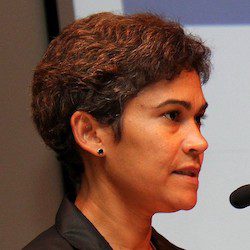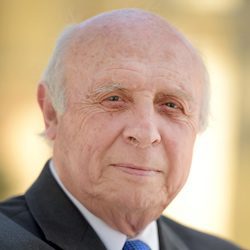Text – Safraaz Ahmad Shadood
 The course content inspired the strategic thinking required to maximise opportunities for small states when pursuing diplomatic relations across countries and organisations. Coming from a small developing country, this course has provided me with the necessary tools to aid me in my duties.
The course content inspired the strategic thinking required to maximise opportunities for small states when pursuing diplomatic relations across countries and organisations. Coming from a small developing country, this course has provided me with the necessary tools to aid me in my duties.
– Mr Safraaz Ahmad Shadood, Foreign Trade Officer, Ministry of Foreign Affairs, Republic of Guyana
 The course was an eye-opener for me, especially as a government official from a small island state (Fiji). Online lectures, sharing information with other students and lecturers, and provided resources all focused on the areas I am interested in. We also drew parallels with world events, not only from the past, but with those happening currently on the ground. As a diplomat, the course has broadened my knowledge on how small states should be strategically leveraging themselves as important actors in international diplomacy, and that size does not necessarily determine outreach and influence of a state in 21st century diplomacy.
The course was an eye-opener for me, especially as a government official from a small island state (Fiji). Online lectures, sharing information with other students and lecturers, and provided resources all focused on the areas I am interested in. We also drew parallels with world events, not only from the past, but with those happening currently on the ground. As a diplomat, the course has broadened my knowledge on how small states should be strategically leveraging themselves as important actors in international diplomacy, and that size does not necessarily determine outreach and influence of a state in 21st century diplomacy. Coming from a small state with limited resources, I can say that the training of diplomats is a difficult task for us. Diplo has provided me with a golden opportunity to further my education for which I have been yearning for as a foreign service officer. I also had the chance to interact with colleagues from around the world. The course has also strengthened my belief that regardless of constraints, some small states have shown their ability to project formidable foreign policy initiatives. The course has additionally broadened my horizons thanks to weekly assignments by colleagues and through analysing the different perspectives on how small states practice their diplomacy. I wish to encourage more diplomats from emerging economies to take this course and strengthen their diplomatic skills.
Coming from a small state with limited resources, I can say that the training of diplomats is a difficult task for us. Diplo has provided me with a golden opportunity to further my education for which I have been yearning for as a foreign service officer. I also had the chance to interact with colleagues from around the world. The course has also strengthened my belief that regardless of constraints, some small states have shown their ability to project formidable foreign policy initiatives. The course has additionally broadened my horizons thanks to weekly assignments by colleagues and through analysing the different perspectives on how small states practice their diplomacy. I wish to encourage more diplomats from emerging economies to take this course and strengthen their diplomatic skills. As a diplomat of a small state, operating in a dynamic and rapidly changing international environment, I must sharpen my skills and be equipped with the right tools in order to be successful. I particularly enjoyed the rich, constructive exchange of views and ideas among the participants. The opportunity to undertake a case study on one small state was truly enlightening. The bonus was the flexibility of studying at my own convenience, from the comfort of my home or office, and receiving a certificate without leaving my country.
As a diplomat of a small state, operating in a dynamic and rapidly changing international environment, I must sharpen my skills and be equipped with the right tools in order to be successful. I particularly enjoyed the rich, constructive exchange of views and ideas among the participants. The opportunity to undertake a case study on one small state was truly enlightening. The bonus was the flexibility of studying at my own convenience, from the comfort of my home or office, and receiving a certificate without leaving my country.





